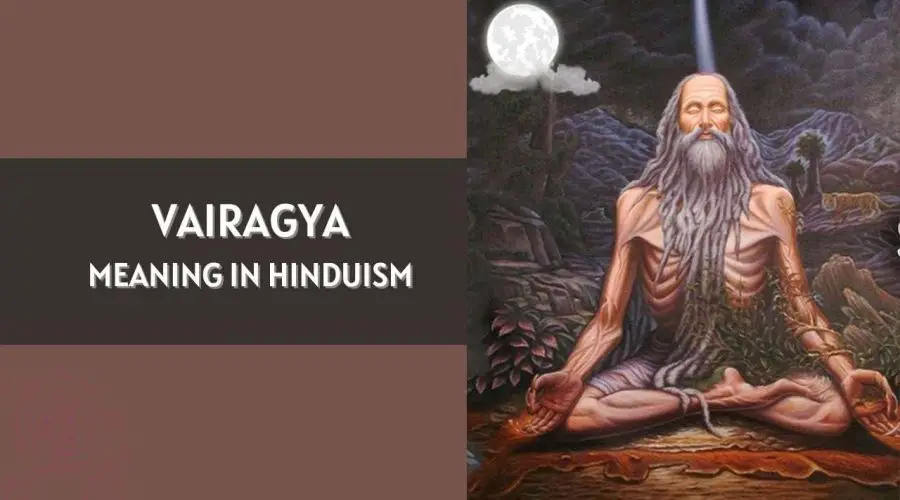What does Vairagya mean in Hinduism?
In Hinduism, the term vairagya is often employed. Most Hindus use it since it appears in practically every Indian language.
In Hinduism, the term vairagya refers to a state of dispassion or renunciation.
The condition of having viraga is known as vairagya. Viraga denotes indifference to exterior things or worldly items.
In Hinduism, vairagya is one of the four characteristics that a spiritual seeker must possess. The last three characteristics are discernment, mental calmness, and a longing for moksha.
The importance of vairagya characteristic has been emphasised, especially in the beginning of Hindu spiritual or religious life.
The characteristic of vairagya is emphasised in all major Sanatana Dharma scriptures.
Intense vairagya allows one to grow more quickly on the road to spiritual emancipation or moksha. This individual is liberated from the cycle of reincarnation or repeated births and deaths and becomes one with Brahman, the ultimate reality.
Vairagya may be practised by anybody, regardless of their socio-economic status or whether they are a householder or a monk. The purpose is to cultivate vairagya toward the universe and all sense things, as well as a connection to God and spiritual life.
Sri Krishna declares in the Bhagavad Gita that only vairagya and abhyasa, or constant practise, can regulate the mind. In his Yoga Sutra, Patanjali emphasises the necessity of vairagya, or nonattachment, as a prerequisite for mind control or the cessation of thought vibrations in the mind.

